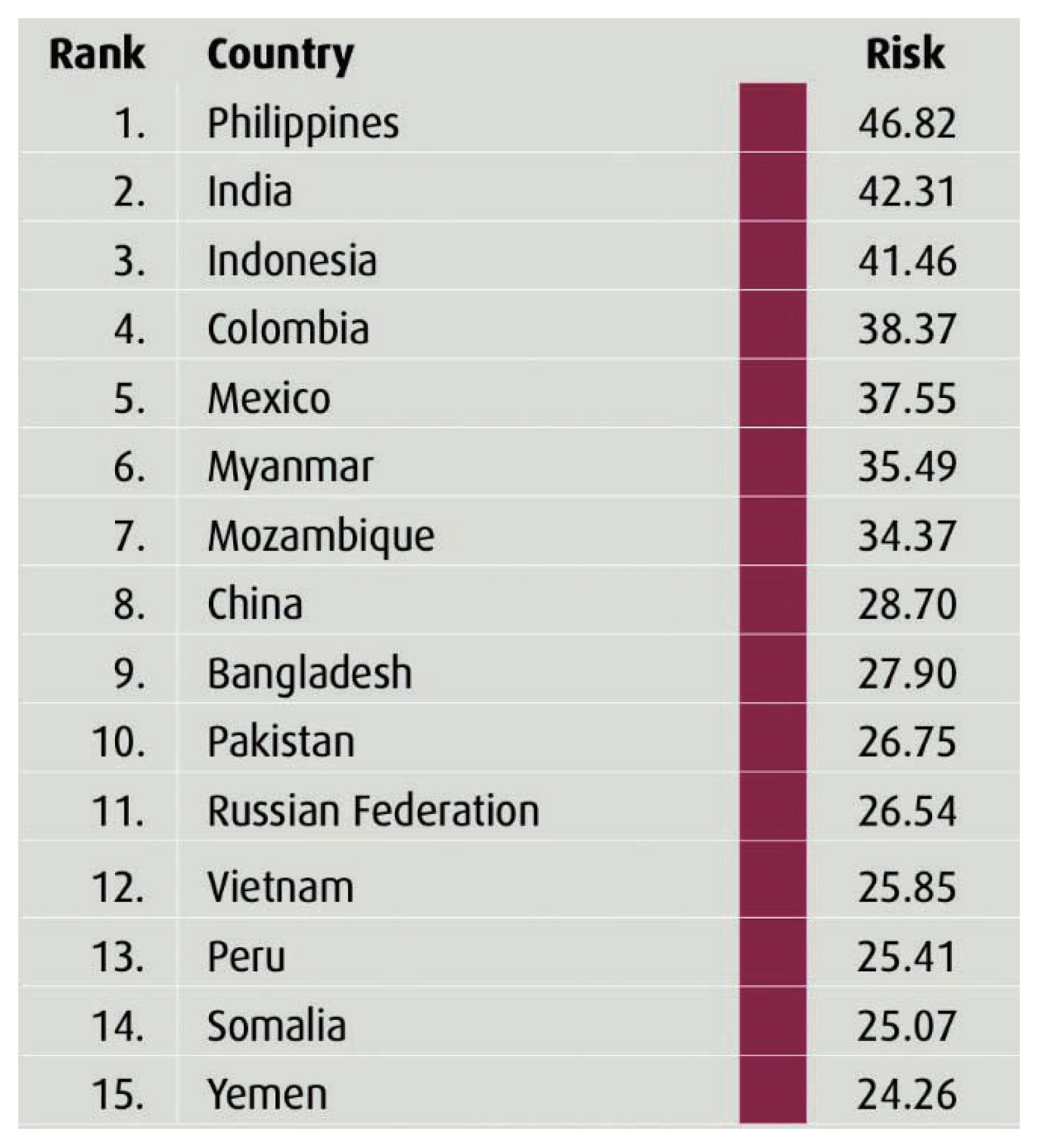Letter to the Editor: Strengthening the Disaster Response of the Philippines for a Better Healthcare System
Article information
Dear Editor,
In a recent article published in this journal, the author highlighted the provision of religious and/or spiritual support to the most vulnerable populations in society, which can promote human flourishing and alleviates the pressures of their day-to-day life. She added that supporting the poor requires collaboration among various institutions [1]. I fully agree with this claim that holistic collaboration is needed to address the needs of vulnerable populations, especially during health crises. Nonetheless, I would like to emphasize that while spiritual/religious support plays an essential role in this issue, a developing country like the Philippines must not solely depend on its “religious” nature of being a Christian nation, but must further improve its disaster response for a better healthcare system.
Filipinos are popularly known as “religious” people given the fact that the majority are Christians, with a particularly high proportion of people belonging to the Catholic Church. Accordingly, there is a tendency for them to entrust everything to their spirituality, especially those in the lower brackets of society or economically poor. The government, most of the time, falls short of the needed services for poor victims. The most affected ones do not have a choice but to depend on their faith in a Higher Being and the kindness and generosity of their neighbors. Government support simply temporarily patches the effects of calamities and then leaves the people in a desolate situation after a few days. With this, it is important to identify the reasons for this “short-term, delayed, and inadequate” response so that necessary interventions can be made to improve the situation for future health crises.
The latest World Risk Index 2022 ranked the Philippines first in the world in risk among 193 countries worldwide (Figure 1) [2]. Specifically, the Philippines had the highest risk score of 46.82 out of 100, where a higher score reflects more risk. It was in the top quintile (meaning worst quintile) for exposure, vulnerability, susceptibility, and lack of coping mechanisms, and in the second quintile for lack of adaptation strategies. This ranking covers risks from earthquakes, hurricanes/typhoons, floods, drought, sea-level rise, tsunamis, and conflict. Natural events are uncontrollable, but there is much to improve in terms of the country’s susceptibility, coping, and adaptation [3]. Susceptibility describes the structural characteristics and conditions of a society that increase the overall likelihood that populations will suffer damage from extreme natural events and enter a disaster situation. Coping involves various capacities and actions of societies to counter the negative impacts of natural hazards and climate change through direct actions and available resources in the form of formal or informal activities, and to minimize damage in the immediate aftermath of an event. Lastly, adaptation is a long-term process and strategy to achieve anticipatory changes in societal structures and systems to counter, mitigate, or purposefully avoid future adverse impacts [2].
The Philippines was hit by 22 tropical cyclones during the coronavirus disease 2019 (COVID-19) pandemic. The recurrent typhoons in the Philippines during the pandemic have led to a long-lasting humanitarian crisis as hundreds of thousands of houses and collateral assets have been destroyed due to floods and landslides, leaving thousands of Filipinos homeless [4]. These massive effects could have been prevented and managed well if there had been a more prepared and systematic disaster response from all sectors of society, especially coming from the government.
The important question is, “what should be done to improve the country’s disaster response program?” The Philippines established the National Disaster Risk Reduction and Management Council (NDRRMC), which is the authorized body for disaster response. Nonetheless, much remains to be improved for the NDRRMC to be effective. First, strong collaboration between the government and the private sectors must be agreed upon and harmoniously established. This agreement should not be a matter of competition, as is sometimes witnessed by the public, but must be done in a spirit of solidarity and compassion for everyone, especially the most affected ones. Second, a well-prepared long-term plan for building more physical infrastructure should be prioritized. These structures, such as hospitals, roads, bridges, and evacuation shelters, undoubtedly play a vital role in taking care of those who are affected. Third, as funds are obviously needed for this infrastructure, there must be sufficient funding with an efficient allocation and monitoring system to avoid corruption. These issues reached popular attention 2 years ago when the controversial multi-billion transactions between the government and Pharmally—a foreign-owned company—came to light and became perhaps the biggest corruption scandal that drew attention even as COVID-19 continued to rage. The government paid P12 billion to the company to deliver COVID-19 supplies, some of which were flagged as being overpriced [5]. This was particularly sad in the middle of the pandemic when many were suffering from poverty and hunger. Lastly, human resources should be prioritized and taken care of. Frontline workers during disasters are considered the “heart and soul” of the healthcare system. Nurses, doctors, soldiers, and rescuers, risk their lives in the service of their fellows, but there are times when their plight is neglected. At the height of the COVID-19 pandemic, many healthcare workers protested against the government to demand an end to what they called government neglect regarding their unpaid benefits, risk allowances, and hazard pay.
The government, through the NDRRMC, is making its best efforts to implement its plans. However, no matter how beautiful and comprehensive this plan is, if it remains not fully implemented and some policies are not seriously followed, then a robust disaster response will remain unreachable. For a nation to rise after different disasters and improve its healthcare system, everyone should serve as a responsible piece of that cornerstone for a stronger foundation and rebuilding.
Notes
CONFLICT OF INTEREST
The author has no conflicts of interest associated with the material presented in this paper.

